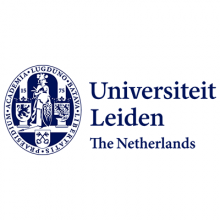One of the Netherlands’ leading universities has been found to have acted unlawfully in collecting anonymous references about a British linguist who applied for a professorial post.
Vyvyan Evans, a former professor of linguistics at Bangor University and author of several popular linguistics books, fought a three-year legal battle against Leiden University after references were sought from former colleagues without his permission or knowledge.
A judgment by a court in The Hague last month found that the university had acted unlawfully in contravening a code of conduct on how to handle job applications. After that decision, Professor Evans, who caused controversy in 2014 with his book The Language Myth, which challenges the idea that language is a unique human instinct, said the case was “an object lesson on the sorts of things that happen in academia” but rarely come to light because of lack of evidence.
In 2016, Leiden advertised for a professorship in English linguistics, and Professor Evans applied for it.
During the application process, Niels Schiller, the academic director of Leiden’s Centre for Linguistics, emailed four academics to solicit anonymous references about their experiences working with Professor Evans, the judgment says.
Professor Schiller then read out an anonymous and critical letter from one of them to the selection committee – despite objections from one of its members, according to the judgment.
Professor Evans said he was tipped off about the letter by academics at Leiden and then started legal proceedings against the university, demanding to see the document as well as the minutes of the selection committee meeting.
Leiden’s response was to admit to “an imperfection in the procedure” and to rerun the selection process, inviting Professor Evans to apply again. The university did not, however, disclose any details about what had happened. Professor Evans chose not to reapply.
Professor Evans went public with the case, which has been a regular feature in the Dutch media since 2016.
Handing down its judgment last month, the court ordered Leiden to pay Professor Evans’ legal costs of about €4,000 (£3,596) as well as damages, to be determined later.
But the court rejected Professor Evans’ effort to hold Professor Schiller and other individuals at Leiden personally responsible, saying the conduct was attributable only to the university.
On his website, Professor Evans welcomed the judgment as “good news” but added that “it doesn’t make me happy, because it shows how badly Leiden University treats people”.
A spokeswoman for Leiden said that its guide for selection committees had been amended and was now “being brought to the more explicit attention of its employees”.
But she also pointed out that the court had found that Professor Schiller and others involved in the selection process had been motivated by a desire to find a suitable candidate.
The court determined that Leiden was also not responsible for Professor Evans’ loss of income, she added.
POSTSCRIPT:
Print headline: Secret checks were unlawful
Register to continue
Why register?
- Registration is free and only takes a moment
- Once registered, you can read 3 articles a month
- Sign up for our newsletter
Subscribe
Or subscribe for unlimited access to:
- Unlimited access to news, views, insights & reviews
- Digital editions
- Digital access to THE’s university and college rankings analysis
Already registered or a current subscriber? Login









